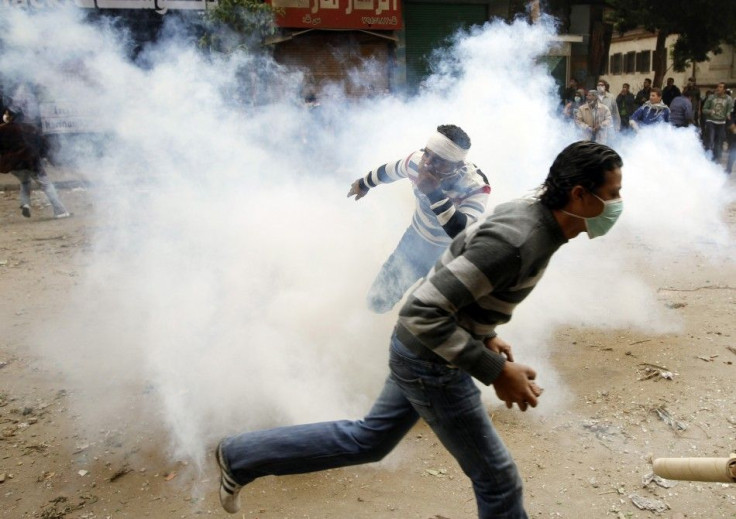Egypt: 35 Killed in Fight Against Ruling Military Council

Protestors in Egypt fought with soldiers and police for the third day in a row on Monday while the death toll rose to 35. Many of the protestors were killed in Cairo's Tahrir square, where just nine months ago the army and Egyptian citizens worked together to overthrow the country's dictatorship.
The Supreme Council of the Armed Forces (SCAF) currently in charge of running Egypt, has been tasked with transitioning from the Hosni Mubarak regime to a democratic government. But, many Egyptian citizens have been angered by the slow pace of change, as well as the military tribunals' authoritarian hold over the country.
People here feel that they have been cheated and that they have moved from an autocracy to a military dictatorship, protester Mosa'ab Elshamy told CNN.
So they are back to the square -- back to square one -- to ask for their rights once again.
A military council took control of Egypt after protestors forced the resignation of Mubarak in February. During the Egyptian uprising, the army served as the defenders of the people, at times blocking off Tahrir Square from the state police and security forces who attacked demonstrators. Popular chants heard during the January and February protests included the army and the people are one hand.
Before the regime change, Egypt's military was an entity separate from the government's control. However, since taking control of the country between Mubarak's ouster and scheduled elections, the military, led by Field Marshal Mohamed Tantawi, has been the sole ruling force in the country, and has used its might to crush demonstrations.
Fighting also broke out in the cities of Alexandria, Suez and Aswan over the weekend.
“The violent policing seen over the weekend is reminiscent of the repression during the ‘25 January revolution’ and security forces relied on the same old patterns of abuse as under the three decades of Mubarak’s rule,” stated Philip Luther, Amnesty International’s Acting Middle East and North Africa Director.
The army has allegedly been abusing activists for months. In a July edition of This American Life, a protestor and blogger named Ali Sobhi detailed how he was detained and brutally beaten by the army in Tahrir Square weeks after the revolution.
The army was there, and they were arresting people, the report said. And along with the army, there were also men in ordinary clothes with sticks, beating protesters. In the old Egypt, it would have been immediately clear what was going on. The men with sticks were thugs, working with the authorities. [Sobhi] wasn't used to seeing thugs with the army. The army that had sided with the people, and refused to attack them during the revolution. He was used to seeing thugs with the police. This was new and disturbing.
Over the weekend, some of the Egyptian protestors were killed by live bullets, according to reports, while others were beaten to death by police batons. Hundreds also were injured on both sides of the battles.
“This bloodshed over the weekend is utterly unacceptable. The violence yet again calls into question the orders given to security forces,” said Luther.
The SCAF said it'll transfer power to a new government following upcoming presidential elections. However, the date of the elections continues to be pushed back, and no official date has been set. Elections will now take place either late next year or early 2013.
During the protests on Sunday and Monday, activists demanded the immediate resignation of the military council. A million-man march against the tribunal is set for Tuesday, according Ahram Online.
“We’ve yet to officially come up with our list of demands, but, basically, we want a national salvation government, the departure of the ruling Supreme Council of the Armed Forces, and the release of revolutionary detainees,” Khaled Abdel Hamid, a leading figure in the Revolution Youth Coalition (RYC), told Ahram Online on Monday.
“I think these demands can be met if the varied political forces unite and support those currently holding Tahrir.”
© Copyright IBTimes 2024. All rights reserved.











